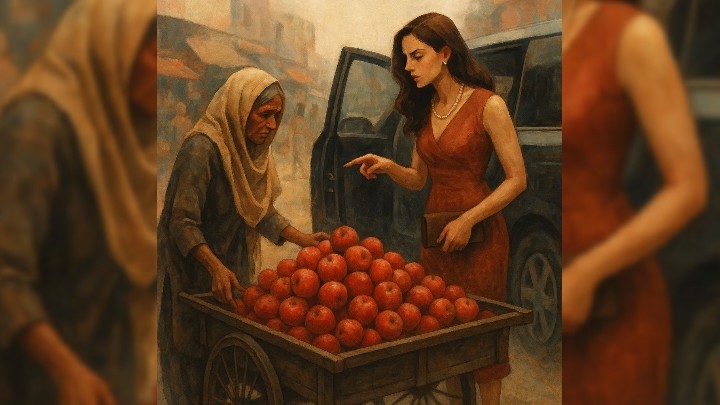
One day, a woman approached an elderly fruit seller and asked,
“How much for the apples?”
The elderly lady replied,
“300 taka per kilogram.”
The woman responded,
“I’ll pay 250 taka. If not, I’ll leave without buying anything.”
The old lady, with a pained look in her eyes, said softly,
“You can have it at your price, dear. This would be my first sale today. My husband is bedridden and ill at home, and I have no son or daughter to help me. I must sell these apples to feed my family.”
The woman bought 5 kilograms of apples at 250 taka per kg and walked away, thinking proudly that she got a great deal.
Then she got into her luxury car with her husband and went to an upscale restaurant.
They ordered the most expensive items from the menu but ate very little. Most of the food was left untouched on the table.
The bill came to 3800 taka.
The woman paid 4000 taka and smiled, saying to the restaurant manager,
“Keep the change as a tip.”
This kind of gesture might seem normal to a restaurant manager.
But for the poor elderly fruit seller, those few extra takas would have made a big difference.
So the question is:
Why do we bargain hard with the poor, who are struggling to survive through honest work — but give generously to those who already have more than enough?
A great man once wrote in his autobiography:
“My father used to buy things from the poor at higher prices, even when he didn’t need them. One day I asked him why. He replied,
‘Because they work hard instead of begging. It’s not just charity, it’s charity with respect.’”